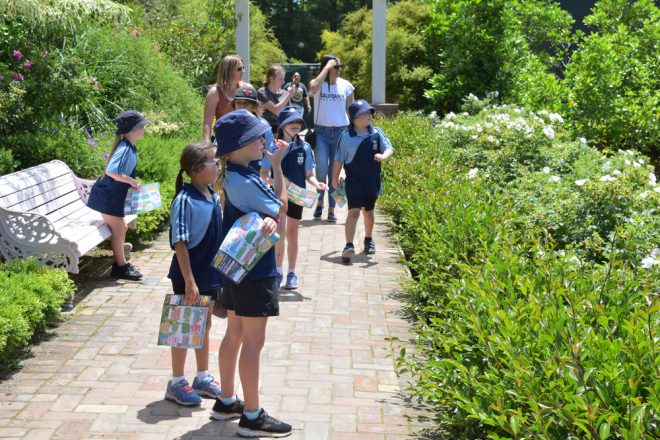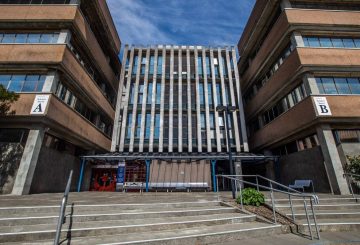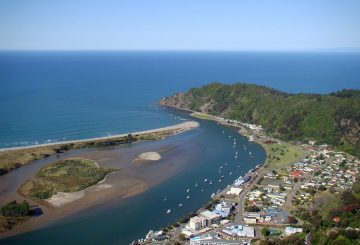Press Release: Education New Zealand
New Zealand high school students are developing global competence skills alongside students from around the world, enabling them to study and work across borders and cultures and boost their job prospects, through the New Zealand Global Competence Certificate (NZGCC) funded by Education New Zealand Manapou ki te Ao (ENZ).
Qualitative research[1] from ENZ concluded that New Zealand businesses who employed staff with cross-cultural competencies found this contributed to a more energising workplace, which helped to foster creativity and innovation as well as other benefits.
The employers agreed cross-cultural competence was a sought-after skill when hiring staff, leading ENZ to fund the programme for more high school students around the country.
Grant McPherson, Education New Zealand’s Chief Executive says, “The insights from New Zealand businesses around the benefits of cross-cultural competencies within their teams have been one of the key reasons we’ve taken this initiative to help grow cultural competency, providing an alternative to international school exchange experience while borders are closed.”
This work supports the third goal of the New Zealand International Education Strategy 2018-2030 to develop global citizens within New Zealand and aims to help both students and teachers develop their cross-cultural skills together with their global peers.
ENZ and Massey University first partnered with the American Field Service (AFS) in July 2020 to launch a pilot of the NZGCC programme. The virtual programme delivers animated videos, quizzes, assignments and weekly live facilitated dialogue sessions for local and offshore learners to talk with each other online in real time.
Following the success of the pilot, ENZ today announced a further $380,000 investment to subsidise the cost for 321 New Zealand and 486 international learners to develop cultural self-awareness, empathy for other cultures, emotional resilience and ways to build bridges in multicultural settings.
18 online modules cover topics such as stereotypes, empathy, dealing with conflict and resilience, and will be delivered to international learners from India, China, Japan, Vietnam, Thailand, the Republic of Korea, Indonesia, Brazil, Mexico, Colombia, Peru and Chile.
The newest students to benefit from the NZGCC programme are Whanganui Girls College, Cullinane College, Whanganui High School and Awatapu College pupils. Starting today, 23 Whanganui and Manawatu students will partake in a virtual learning exchange with 20 high school students in Tokyo, Japan, in a partnership with the Tokyo Board of Education.
Whanganui Girls College principal Sharon Steer says the new programme will help students build their understanding of global cultures – critical ‘soft’ skills that will also prepare them for life after high school as they enter the workforce.
“An important part of our curriculum is developing strong communication skills and setting our students up for success in the workplace. The NZGCC programme will add another dimension to our lessons by teaching our students how to develop meaningful relationships with one another despite language and cultural differences,” said Steer.
“This allows our students to connect with peers in Japan and learn more about their culture without having to get on a plane when international travel remains limited.”
In addition to secondary school students, the NZGCC programme will support teachers in indigenous communities in Pacific Alliance countries, and people undertaking English language and teacher training in Indonesia, Vietnam and the Republic of Korea.
Around 100 students from decile 1 to 5 schools across New Zealand will be offered NZGCC scholarships to participate in a virtual exchange with their peers in Asia.
ENZ’s Chief Executive Grant McPherson said the programme’s expansion is a key part of diversifying education in new virtual forms fit for a globally connected world.
“We’re pleased to continue our support for the NZGCC programme to bring New Zealand and international learners together in a virtual environment to gain the skills needed to live, work and learn globally.
“As well as helping to develop the global citizens of tomorrow, this programme demonstrates the reciprocal benefits of international education, giving our rangatahi a chance to learn with high school students from around the world, and giving their offshore peers a chance to learn ‘with’ New Zealand and our unique way of thinking.”
More information about the NZGCC can be found here: https://www.globalup.com/






























































